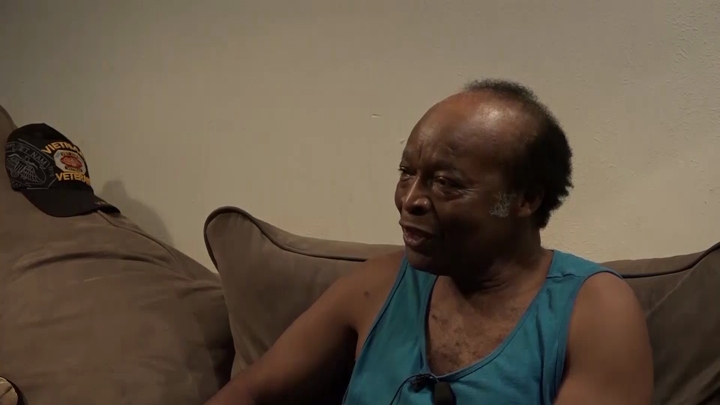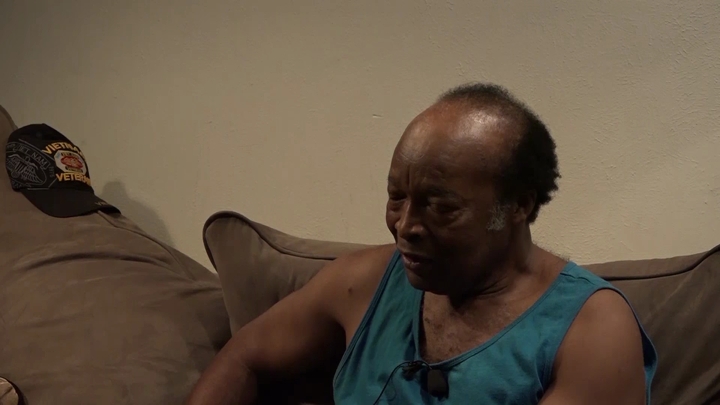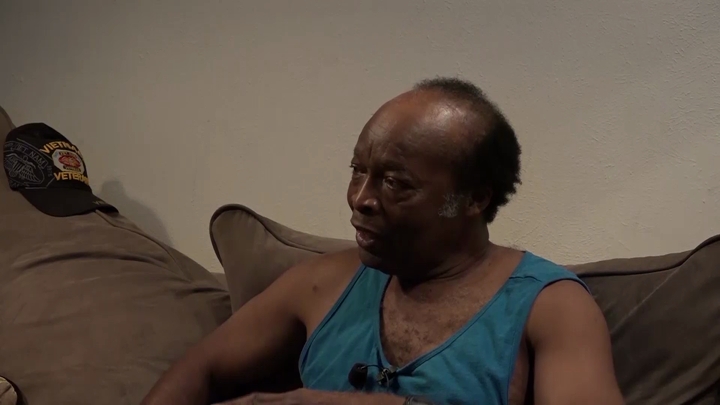Calyen / Past Work and High School Sports, Part One
sign up or sign in to add/edit transcript
Interviewer: Why did you think you started working at a young age—such a young age? You said thirteen and a half. Calyen: Thirteen and a half yeah. Even before that, they something—those guys had logs. Buck wood holders. They had wood that would be out there, and they would give you a scraper and you could scrape the bark off the tress and they’d pay you two cents a foot and you’d keep all your poles to one side and mark them, you know, how much you would get at that Friday when they paid you off. I think I must have been about nine when I started doing that. After then, I was always interested—I was enterprising. I always wanted to earn money. I got that privilege when Mr. Clinton’s son John had finished school and he needed someone to work in John’s place and he recommended me. I worked there until I finished school. Interviewer: So, did you work there just for money for yourself or for your family? Calyen: Yeah, for myself, yeah. Interviewer: Since nine? (laughs) Calyen: It was all mine. I didn’t have anybody to give any money to. Interviewer: In terms of jobs, where did most people in the black community work? What kind of jobs did they work? Calyen: The adults that were in good physical condition, they worked at the creosote plant where they made those telephone poles and creosote poles. They worked there. They had a few people that worked at the carbon plant. Some of those guys, they were in the lumber business. We called it (inaudible) wood. They had trucks that they hauled (inaudible) wood on and then their other people that worked in the restaurant business. They were cooks and maids. Other people worked in private houses. They were maids and landscapers. Interviewer: How would you say was the pay for these kind of jobs? Calyen: Like I said, when I was sixteen, that pay was a dollar and sixty-five cents. I don’t know what the pay rate was. I think that dollar sixty-five was above the pay scale at that particular time. Interviewer: You mentioned a lot of people worked for industries. How dangerous were these jobs? Calyen: You would hear about people getting hurt at the creosote plant and some people would end up getting burned at laundries and cleaners where they worked. There’s always an element of danger in any kind of work, but there was no such thing as OSHA or any of those places that would come in and check to see if you were running the business the right way, if you had safety measures there. It was pretty much everyone was on their own. You know, you were responsible for your own safety. Interviewer: So, you were on a state championship football team at Booker T. Washington. I read an article that some decades later, y’all received— Calyen: The rings. Interviewer: Can you talk about that experience? Calyen: When the championship was won, nobody made really a big issue out of it, but we knew that other teams had received rings and trophies and other type of benefits, but the team that won the 1965 championship never got anything. So, Ricky Warren knew some people that wanted to honor the team and a couple years ago they honored it at Conroe High School during a football game.
| Interview | Interview with Henry Calyen |
| Subjects | Family › Childhood Experiences |
| Work | |
| Housing › Neighborhoods | |
| Discrimination or Segregation | |
| Education › Education and Integration | |
| Tags | Conroe High School, Conroe, TX |
| Booker T. Washington Junior High School, Conroe, TX | |
| sign up or sign in to add/edit tags | |
| Interview date | 2016-07-06 |
| Interview source | CRBB Summer 2016 |
| Interviewees | Calyen, Henry |
| Duration | 00:04:05 |
| Citation | "Past Work and High School Sports, Part One," from Henry Calyen oral history interview with , July 06, 2016, Conroe, TX, Civil Rights in Black and Brown Interview Database, https://crbb.tcu.edu/clips/3410/past-work-and-high-school-sports, accessed March 03, 2026 |





